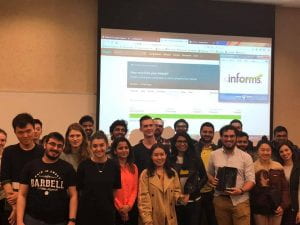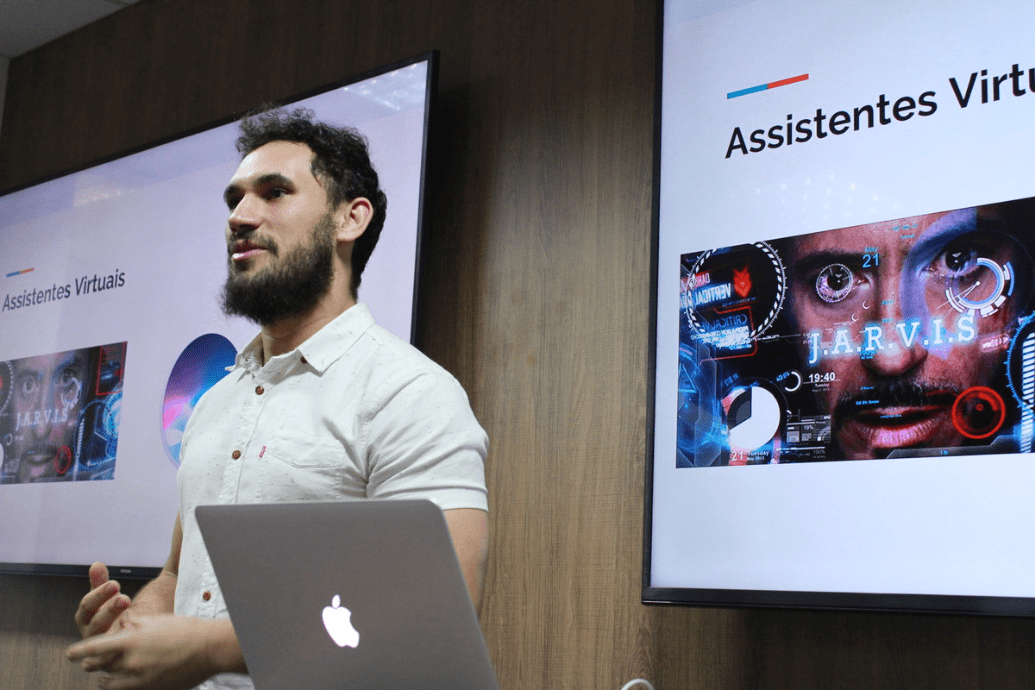Ian Carvalho, a Seidenberg student in the process of obtaining an MS in Computer Science, is a student to watch. The award-winning individual spends his time volunteering and creating apps dedicated to assisting others when he has a free moment. His most recent success came from the Pace AirBnB Pricing Challenge where he won first place!
As an undergraduate student, Ian was fortunate enough to be the recipient of the Brazilian government-funded scholarship, Science Without Borders, which helped him study in the United States for a year. The scholarship led him to Pace University to pursue undergraduate and graduate degrees. After obtaining his Bachelor’s degree in Computer Science in 2016, Ian scored a Research Internship with IBM over the summer. When fall rolled around, he decided to stick around at Seidenberg for his graduate education, choosing to pursue a Masters in Computer Science.
So far, Ian has called his time at Seidenberg, “very intense.” As a Graduate student, Graduate Assistant for Dr. Juan Shan, and PIP Design Factory team member, it’s safe to say that his time has been exactly that—but he’s not done yet.
During his time as a Seidenberg student, he’s gone above and beyond in his extracurricular activities. Ian taught a workshop on iOS development in partnership with PCS, won first place in the App Design Contest with the Entrepreneurship Lab for his application Helpteer, and participated at a Humanitarian Hackathon hosted by Google to assist the non-profit, Techo, which seeks to overcome poverty in slums.
Most recently, Ian identifies himself as a volunteer, Agile NYC participant, and a Java tutor. Beyond those activities, he’s a freelance iOS and Game Developer and Senior Software Developer at BRQ Digital Solutions. Plus, he is working on his master’s thesis.
“Currently, I am writing my thesis on applying deep learning to assist medical imaging problems [such] as Breast Cancer detecting and Knee bone segmentation,” he explains.
All of Ian’s successes are considered a win for all of the Seidenberg community, but his first place win for the Pace AirBnB Pricing Challenge is definitely something to recognize.

The challenge was created by Professor Lala and sponsored by INFORMS on the Westchester campus. The goal of the competition, which was held through the platform Kaggle, was to create a machine learning program with the capability to predict the current price of a listing using the given Airbnb data. Students were encouraged to actively participate in order to make their entry the best possible.
“I participated very actively during the last week of the challenge,” Ian explains.
Ian developed an artificial intelligence model to predict rental pricings for Airbnb listings, and his role of actively participating during the last week led to his ultimate victory. But his triumph did not come easily. Ian detailed the process of testing different models to see which achieved the highest performance. In the end, he combined the results of several models to predict the closest result.
“The challenge consisted in analyzing a dataset with more than [just] variables as a number of beds, reviews, amenities, etc. from [an] Airbnb listing. Part of the dataset ([which was] used for training) had the pricing, which the model used to learn patterns,” he explains.
These analyses were not a one and done deal. Ian explains that he had to rework the model many times.
“After learning, the model would try to predict the prices in the testing dataset,” he explains. “Results would then be submitted to Kaggle, that would compare to the real results and assign a score. It sounds simple, in theory, but the work involved many steps and especially because I was working solo, it got very intense at first I would have to clean the data, remove useless columns, fill missing values and encode some of the data in a way that’s understandable to the model.”
The process was long, especially since Ian spent most of the last week of the challenge really cramming to achieve the best result. When he received that win in the end, all of his hard work and maximum effort worth it. When asked about how he felt about winning, Ian summed it up with one word: “amazing.”
“I knew I had a good result because of the way that the competition works. They show a public partial leaderboard and when the competition finishes they disclose the complete result,” Ian explained. “So it could be possible that someone at the first place in the public leaderboard would be placed in second in the final score. So until the last minute, I was trying to improve my model to make sure I would win.”
As for his overall experience, Ian would recommend it to anyone.
“It’s very rewarding. When I first started, I wasn’t expecting to win, as this was my first challenge of the kind, but I got good results and they kept improving with every submission. I learned a lot and it was very fun,” he notes.
Seidenberg students have numerous opportunities throughout the school year to compete in tech challenges, Hackathons, and much more! Make sure you check in with our social media to see what challenges are coming up next.
Follow us on social media for updates!







